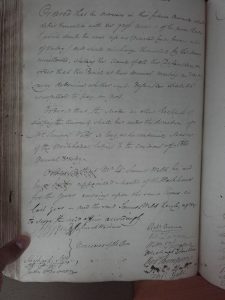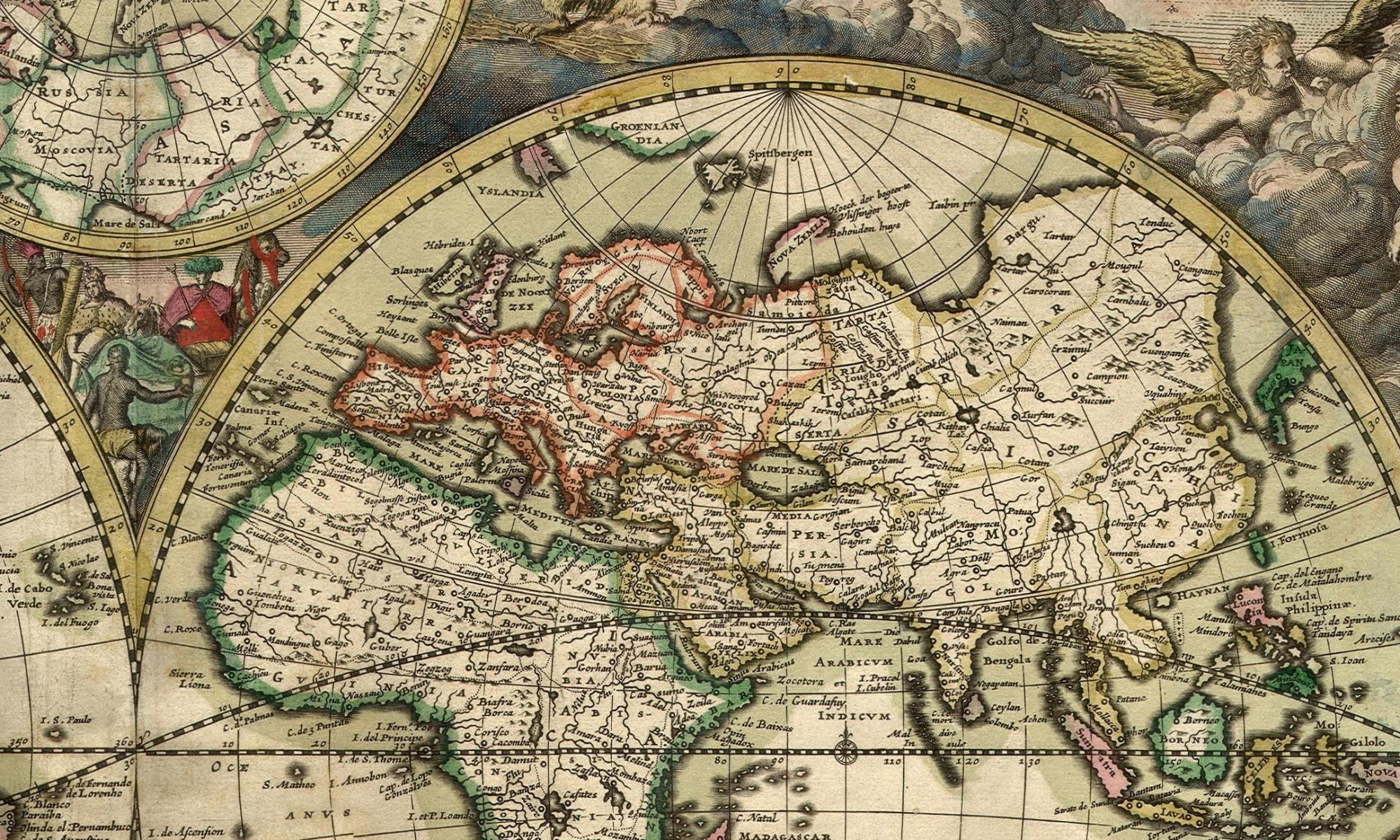This is the first in a series of blog posts by Open University History PhD students on the primary sources they are using for their doctoral research.
For many towns and villages in the Georgian period (1714-1830) the vestry or vestry meeting was the main organ of local government. They were called vestry meetings because these gatherings were often held in the church vestry room after Sunday worship, when the parishioners would meet and make decisions concerning welfare provision, the maintenance of roads and law and order in their parish. In fact, vestry meetings covered virtually anything that concerned the local community.
Many English county archives contain the minutes of these meetings. One example is the Cirencester vestry minutes held at the Gloucestershire Archives in Gloucester. The minutes are bound in a weighty tome that records nearly three hundred years of parish history in this Cotswold town. The vestry minutes provided source material that formed the backbone of my MA project, and will be an important source for my PhD research. These vestry minutes are at times wonderfully detailed, yet at other times frustratingly sparse. The minutes depict local reactions to events such as small pox epidemics, wheat famines, central government policy and the Napoleonic Wars. Close study of the minutes reveals the impact of the industrial revolution and Gloucester’s economic decline and restructure. Occasionally the information within the minutes can help draw out individual stories, such as that of a local magistrate who misappropriated hundreds of pounds of charity funds.
Unfortunately not all English parishes recorded information in the same detail. Many vestry minutes only provide a list of annual appointments to local offices. Minutes are often fragmentary or lost to history. As vestry minutes only provide one perspective on local history, they need to be looked at along with other sources. There is always the frustration of hours of research among these sources with nothing tangible at the end of it. But the Cirencester vestry minutes manuscript provided me with one of those rare “Eureka!” moments which debunked arguments and interpretations by historians that I had read in the secondary literature. This encouraged me to question existing scholarship and sent me in the direction that would result in my PhD research.
Vestry minutes are a source of continuous fascination for me, often exasperating but providing a wealth of material that is surprising and insightful.
Louise Ryland-Epton is a PhD candidate at the Open University researching eighteenth century poverty, welfare legislation and the inner workings of the Georgian state. She has a blog, Georgian Perspectives, where she has written more about the information found in vestry minutes:
https://georgianperspectives.wordpress.com/2017/09/02/jobs-for-women/

